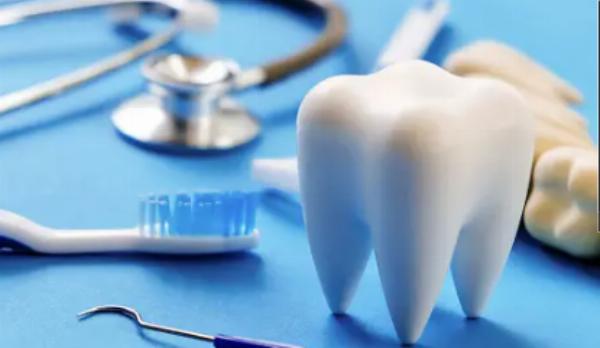Understanding Wisdom Teeth: What You Should Know

Strong 8k brings an ultra-HD IPTV experience to your living room and your pocket.
What Are Wisdom Teeth? Wisdom teeth, also known as third molars, are the final set of molars that typically appear between the ages of 17 and 25. They are located at the back corners of your mouth, with two on the top and two on the bottom.
How Many Wisdom Teeth Do You Have?
Most people have four wisdom teeth, one in each corner of the mouth. However, it's not uncommon for some individuals to have fewer or even none at all. The presence and number of wisdom teeth can vary from person to person.
What is the Function of Wisdom Teeth?
Historically, wisdom teeth served a crucial role in human evolution. Our ancestors had larger jaws and relied on these extra molars to grind tough foods like roots, nuts, and meats. However, as our diets evolved and became softer over time, the need for these extra molars diminished.
Common Issues with Wisdom Teeth
One of the most common problems associated with wisdom teeth is impaction. Impacted wisdom teeth occur when there isn't enough space in the jaw for them to erupt properly. This can lead to various issues such as:
Pain and Discomfort:
Impacted wisdom teeth can cause pain, swelling, and discomfort in the back of the mouth.
Infections:
Because they are difficult to clean, impacted wisdom teeth can become breeding grounds for bacteria, leading to infections and gum disease.
Damage to Other Teeth:
Impacted wisdom teeth may push against neighboring teeth, causing them to shift or become damaged.
Why Do Wisdom Teeth Sometimes Need to Be Removed?
Due to their potential for complications, many people opt to have their wisdom teeth removed. Even if they aren't currently causing issues, dentists often recommend extraction to prevent problems in the future. Reasons for removal include:
Impaction:
If a wisdom tooth is impacted and causing pain or infection, removal may be necessary.
Preventive Measures:
Some dentists recommend removal before problems arise to avoid potential complications later in life.
Orthodontic Treatment:
Wisdom teeth can interfere with orthodontic treatment plans, such as braces, by causing crowding or misalignment.
How Are Wisdom Teeth Removed?
Wisdom teeth removal is a common dental procedure that is typically performed by an oral surgeon or dentist. The procedure may be done under local anesthesia (numbing the area around the tooth) or general anesthesia (where you're asleep during the procedure) to ensure comfort.
During the extraction:
Incision:
The gum tissue covering the tooth is opened to expose the tooth and bone.
Removal:
The tooth may be divided into sections to ease removal or extracted whole.
Closure:
After the tooth is removed, the site is stitched closed to promote healing.
Recovery After Wisdom Teeth Removal
Recovery from wisdom teeth removal usually takes about a few days to a week. During this time, it's essential to follow your dentist's post-operative instructions, which may include:
Pain Management:
Taking prescribed or over-the-counter pain relievers as directed.
Swelling Reduction:
Applying ice packs to the outside of your cheek to reduce swelling.
Eating and Drinking:
Consuming soft foods and avoiding straws to prevent complications like dry socket.
Rest and Recovery:
Taking it easy and allowing your body to heal properly.
Wisdom teeth play a unique role in dental health, reflecting both our evolutionary past and modern dental practices. Understanding their development, potential problems, and the removal process can help you make informed decisions about your oral health And what is the function of wisdom teeth?
If you're experiencing discomfort or have questions about your wisdom teeth, consulting with a dentist is the best step to ensure proper care.
Wisdom teeth, also known as third molars, are the final set of molars that typically appear between the ages of 17 and 25. They are located at the back corners of your mouth, with two on the top and two on the bottom.
How Many Wisdom Teeth Do You Have?
Most people have four wisdom teeth, one in each corner of the mouth. However, it's not uncommon for some individuals to have fewer or even none at all. The presence and number of wisdom teeth can vary from person to person.
What is the Function of Wisdom Teeth?
Historically, wisdom teeth served a crucial role in human evolution. Our ancestors had larger jaws and relied on these extra molars to grind tough foods like roots, nuts, and meats. However, as our diets evolved and became softer over time, the need for these extra molars diminished.
Common Issues with Wisdom Teeth
One of the most common problems associated with wisdom teeth is impaction. Impacted wisdom teeth occur when there isn't enough space in the jaw for them to erupt properly. This can lead to various issues such as:
Pain and Discomfort: Impacted wisdom teeth can cause pain, swelling, and discomfort in the back of the mouth.
Infections: Because they are difficult to clean, impacted wisdom teeth can become breeding grounds for bacteria, leading to infections and gum disease.
Damage to Other Teeth: Impacted wisdom teeth may push against neighboring teeth, causing them to shift or become damaged.
Why Do Wisdom Teeth Sometimes Need to Be Removed?
Due to their potential for complications, many people opt to have their wisdom teeth removed. Even if they aren't currently causing issues, dentists often recommend extraction to prevent problems in the future. Reasons for removal include:
Impaction: If a wisdom tooth is impacted and causing pain or infection, removal may be necessary.
Preventive Measures: Some dentists recommend removal before problems arise to avoid potential complications later in life.
Orthodontic Treatment: Wisdom teeth can interfere with orthodontic treatment plans, such as braces, by causing crowding or misalignment.
How Are Wisdom Teeth Removed?
Wisdom teeth removal is a common dental procedure that is typically performed by an oral surgeon or dentist. The procedure may be done under local anesthesia (numbing the area around the tooth) or general anesthesia (where you're asleep during the procedure) to ensure comfort.
During the extraction:
Incision: The gum tissue covering the tooth is opened to expose the tooth and bone.
Removal: The tooth may be divided into sections to ease removal or extracted whole.
Closure: After the tooth is removed, the site is stitched closed to promote healing.
Recovery After Wisdom Teeth Removal
Recovery from wisdom teeth removal usually takes about a few days to a week. During this time, it's essential to follow your dentist's post-operative instructions, which may include:
Pain Management: Taking prescribed or over-the-counter pain relievers as directed.
Swelling Reduction: Applying ice packs to the outside of your cheek to reduce swelling.
Eating and Drinking: Consuming soft foods and avoiding straws to prevent complications like dry socket.
Rest and Recovery: Taking it easy and allowing your body to heal properly.
Conclusion
Wisdom teeth play a unique role in dental health, reflecting both our evolutionary past and modern dental practices. Understanding their development, potential problems, and the removal process can help you make informed decisions about your oral health. If you're experiencing discomfort or have questions about your wisdom teeth, consulting with a dentist is the best step to ensure proper care.
Wisdom teeth, also known as third molars, are the final set of molars that typically appear between the ages of 17 and 25. They are located at the back corners of your mouth, with two on the top and two on the bottom.
How Many Wisdom Teeth Do You Have?
Most people have four wisdom teeth, one in each corner of the mouth. However, it's not uncommon for some individuals to have fewer or even none at all. The presence and number of wisdom teeth can vary from person to person.
What is the Function of Wisdom Teeth?
Historically, wisdom teeth served a crucial role in human evolution. Our ancestors had larger jaws and relied on these extra molars to grind tough foods like roots, nuts, and meats. However, as our diets evolved and became softer over time, the need for these extra molars diminished.
Common Issues with Wisdom Teeth
One of the most common problems associated with wisdom teeth is impaction. Impacted wisdom teeth occur when there isn't enough space in the jaw for them to erupt properly. This can lead to various issues such as:
Pain and Discomfort: Impacted wisdom teeth can cause pain, swelling, and discomfort in the back of the mouth.
Infections: Because they are difficult to clean, impacted wisdom teeth can become breeding grounds for bacteria, leading to infections and gum disease.
Damage to Other Teeth: Impacted wisdom teeth may push against neighboring teeth, causing them to shift or become damaged.
Why Do Wisdom Teeth Sometimes Need to Be Removed?
Due to their potential for complications, many people opt to have their wisdom teeth removed. Even if they aren't currently causing issues, dentists often recommend extraction to prevent problems in the future. Reasons for removal include:
Impaction: If a wisdom tooth is impacted and causing pain or infection, removal may be necessary.
Preventive Measures: Some dentists recommend removal before problems arise to avoid potential complications later in life.
Orthodontic Treatment: Wisdom teeth can interfere with orthodontic treatment plans, such as braces, by causing crowding or misalignment.
How Are Wisdom Teeth Removed?
Wisdom teeth removal is a common dental procedure that is typically performed by an oral surgeon or dentist. The procedure may be done under local anesthesia (numbing the area around the tooth) or general anesthesia (where you're asleep during the procedure) to ensure comfort.
During the extraction:
Incision: The gum tissue covering the tooth is opened to expose the tooth and bone.
Removal: The tooth may be divided into sections to ease removal or extracted whole.
Closure: After the tooth is removed, the site is stitched closed to promote healing.
Recovery After Wisdom Teeth Removal
Recovery from wisdom teeth removal usually takes about a few days to a week. During this time, it's essential to follow your dentist's post-operative instructions, which may include:
Pain Management: Taking prescribed or over-the-counter pain relievers as directed.
Swelling Reduction: Applying ice packs to the outside of your cheek to reduce swelling.
Eating and Drinking: Consuming soft foods and avoiding straws to prevent complications like dry socket.
Rest and Recovery: Taking it easy and allowing your body to heal properly.
Conclusion
Wisdom teeth play a unique role in dental health, reflecting both our evolutionary past and modern dental practices. Understanding their development, potential problems, and the removal process can help you make informed decisions about your oral health. If you're experiencing discomfort or have questions about your wisdom teeth, consulting with a dentist is the best step to ensure proper care.
Note: IndiBlogHub features both user-submitted and editorial content. We do not verify third-party contributions. Read our Disclaimer and Privacy Policyfor details.


